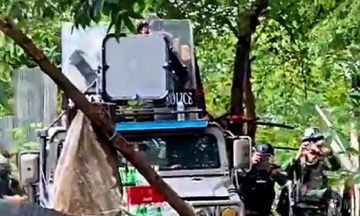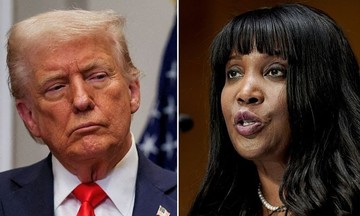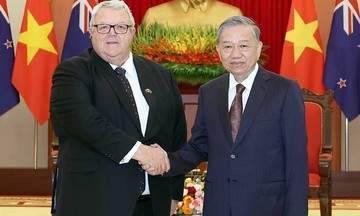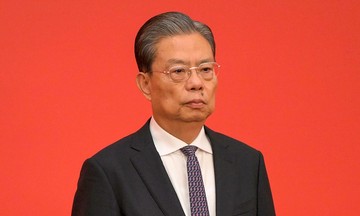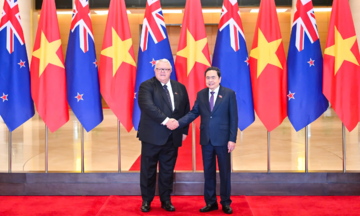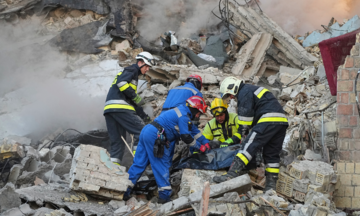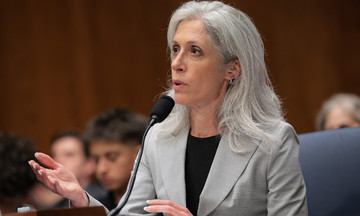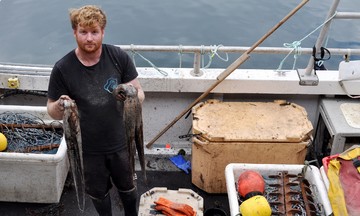Former President Donald Trump recently expressed openness to the US providing some form of security guarantees to Ukraine once the current war ends. France and the UK have proposed sending "assurance forces" to the country to prevent a potential Russian resurgence after the conflict.
However, European leaders are facing a significant obstacle. Many voters oppose any deployment that puts their soldiers at risk. Eastern European countries have long been reluctant to send troops beyond their own borders, which form NATO's eastern flank. Opposition is also widespread in Italy and Germany, where memories of World War II still linger.
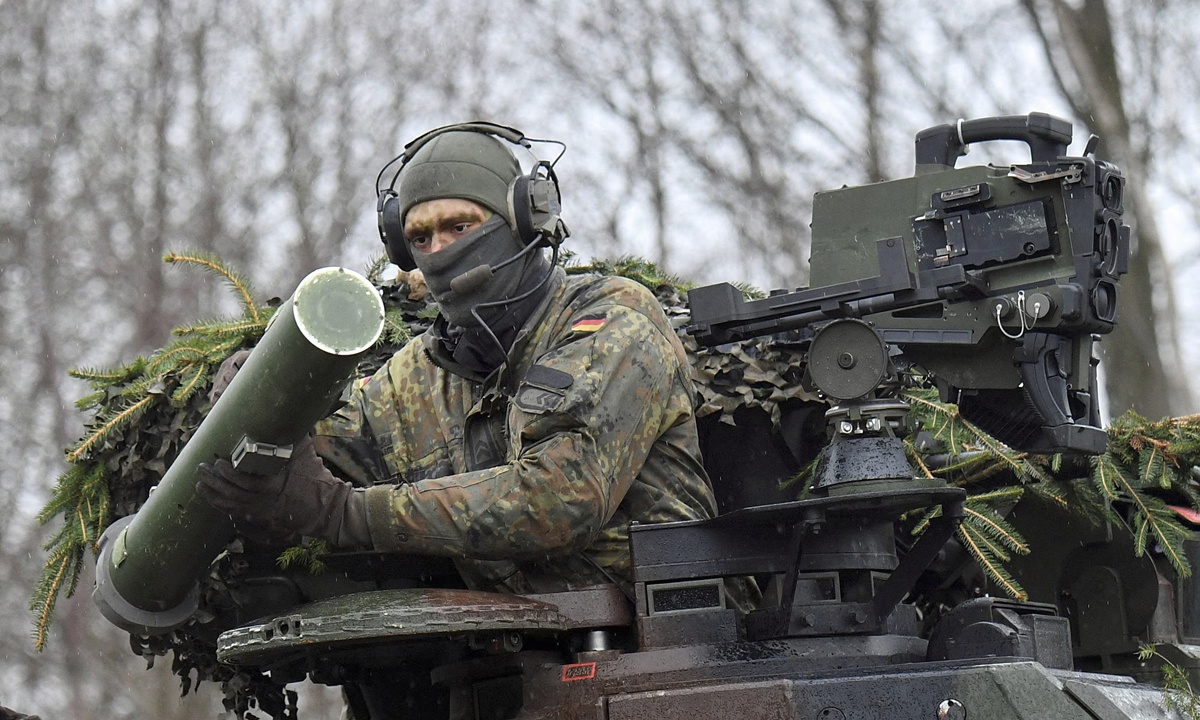 |
A soldier participates in a NATO exercise in Marienberg, Germany, in 2023. Photo: Reuters |
A soldier participates in a NATO exercise in Marienberg, Germany, in 2023. Photo: Reuters
When German Chancellor Friedrich Merz last month mentioned plans to consult parliament about potentially sending troops to Ukraine, Foreign Minister Johann Wadephul cautiously warned that such a deployment would further strain the German armed forces as they are already establishing an armored brigade in Lithuania to protect NATO’s eastern flank. Other political leaders said it was premature to discuss the issue, as there is no indication that Russia and Ukraine are close to a peace agreement.
Any German troop deployment would have to be approved by parliament, where the government holds a relatively slim majority. Both far-right and far-left opposition parties strongly oppose sending troops to Ukraine. A survey by polling firm Insa last week found that 56% of respondents opposed German participation in the plan, up from last spring.
"I fear that the German army may not be able to handle such a mission and protect our homeland at the same time," said Leonard Wolters, 28, a marketing employee in Berlin.
Even in France, one of the strongest proponents of sending troops to Ukraine after the conflict, public support hinges on Moscow and Kyiv reaching a final peace agreement, not a ceasefire. A March survey by Elabe found that 67% of respondents supported deploying French troops if Russia and Ukraine reached a peace agreement. Without an agreement, 68% opposed it.
Nicolas Degages, a 45-year-old stage technician in Paris, does not see Russia as a threat and expressed skepticism toward European leaders. "If we go to Ukraine to rebuild, that's fine. But if we go to sow doubt and maintain the conflict, it makes no sense," he said.
According to European officials, it will be difficult to persuade the public about sending troops to Ukraine without a firm commitment from the US that it will support European forces in carrying out the mission. Despite weeks of diplomatic efforts, it remains unclear what Washington is willing to provide. Former President Trump has ruled out sending US troops to Ukraine, saying only that Washington would play some role in ensuring Kyiv's security.
Many European leaders believe that sending troops to Ukraine is crucial for regional security, warning that Moscow could advance into other parts of Europe if Kyiv falls. The deployment would also demonstrate Europe’s commitment to protecting Ukraine as the US considers what kind of security guarantees it is willing to offer.
These arguments have found support in some parts of Europe, particularly in northern countries. The Netherlands, Denmark, and Estonia have expressed willingness to contribute soldiers.
French President Emmanuel Macron has tried to reassure the public that, if deployed, French soldiers would only be present at airports and key infrastructure, far from the fighting. He and other European leaders have long maintained that frontline defense should be handled by the Ukrainian army.
"This force is not tasked with guarding the border," Macron said, adding that French troops would "provide strategic support".
The UK also has conditions for the plan. Prime Minister Keir Starmer said such a security force would only be deployed if the US committed to providing military support to British troops if they were attacked by Russia. Polls show that a majority of the British public supports their military participating in a peacekeeping mission, but they do not want to provoke a direct confrontation with Russia. Starmer’s government has remained silent on whether British soldiers in Ukraine would be authorized to target Russia if Moscow relaunched an attack.
Meanwhile, plans for a 30,000-strong European peacekeeping mission have been scaled back partly due to a shortage of personnel in the British army. France and the UK are planning to commit 6,000-10,000 troops. UK officials said Britain could focus on the maritime and air domains, helping to control the skies and seas. Ground troops, if deployed, would focus on training Ukrainian ground forces.
However, the effort to create a European force to ensure Ukraine's security, even on a smaller scale, is facing fierce opposition from populists on the continent. After European leaders met with Trump in Washington to persuade the US to join the plan, Italian Deputy Prime Minister Matteo Salvini criticized Macron for promoting the idea.
"If you want to go, go ahead. Put on your helmets, your coats, take your rifles, and go to Ukraine," said Salvini, leader of Italy's nationalist League party.
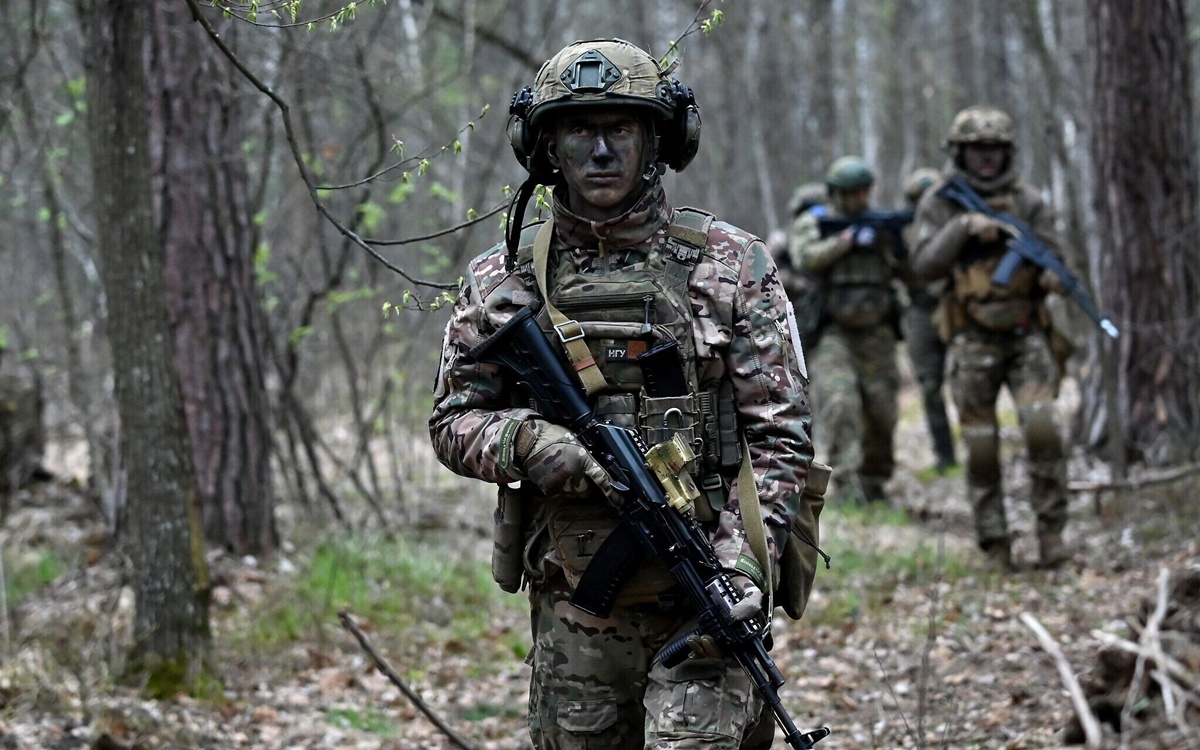 |
Ukrainian soldiers participate in a military training exercise on the outskirts of Kyiv in 4/2023. Photo: AFP |
Ukrainian soldiers participate in a military training exercise on the outskirts of Kyiv in 4/2023. Photo: AFP
Poland was one of Ukraine's biggest supporters in the early years of the conflict, sending military aircraft, tanks, helicopters, and armored personnel carriers to the front lines. But it has also drawn a red line on sending troops into Ukraine.
According to Polish officials, the risks associated with sending troops to Ukraine are much higher for border countries. They fear such a force could spark an escalation of the conflict that could spill over into Polish territory.
After the influx of Ukrainian refugees into Poland in 2022, the conflict has become deeply politicized in the country, where many support limiting aid to its neighbor. According to a March survey by independent polling firm United Surveys, 58.5% of respondents strongly opposed sending troops to Ukraine, and 28% said Poland "probably shouldn’t" send troops.
Vu Hoang (WSJ, AFP, Reuters)



